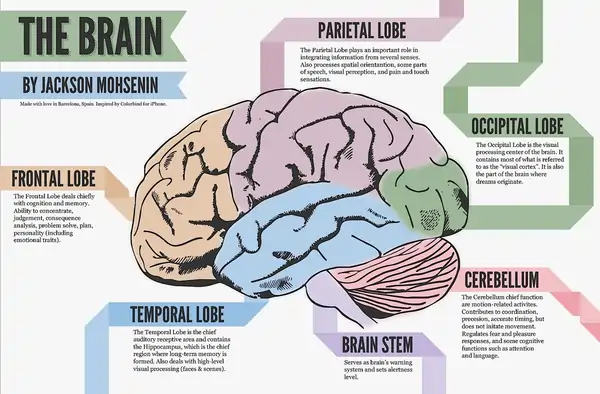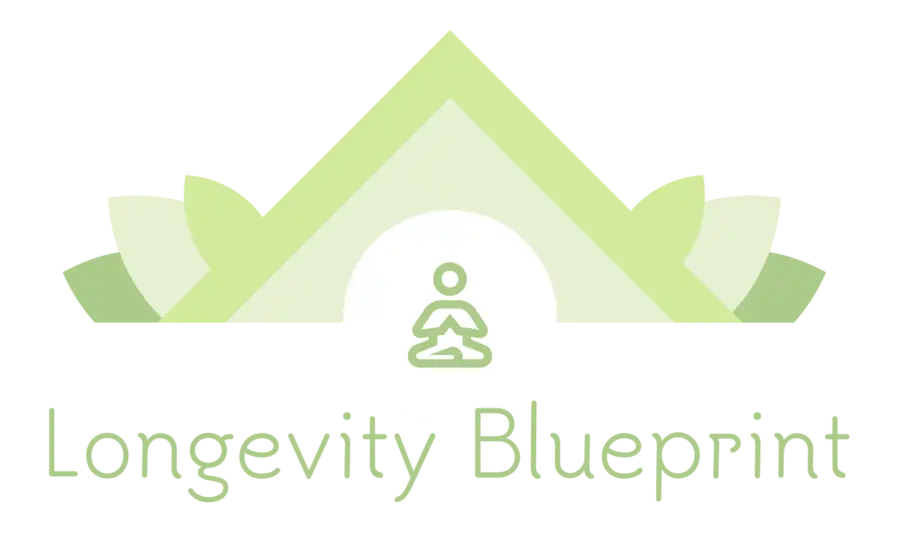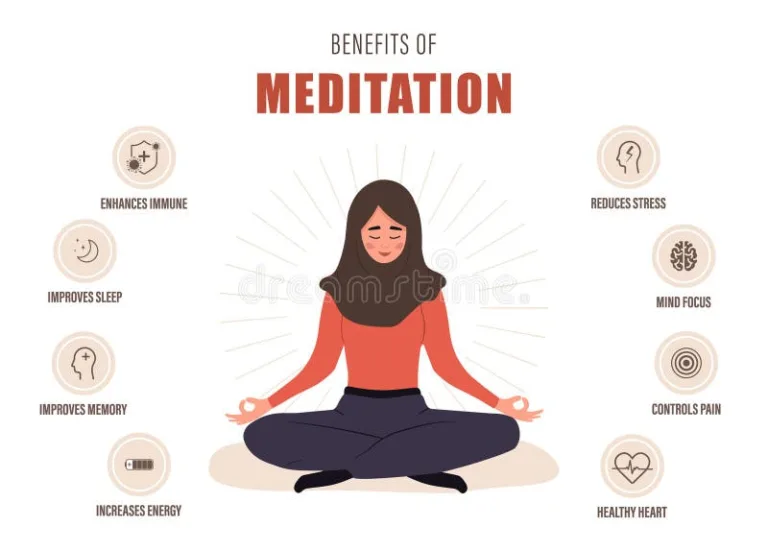Mind Over Body: The Science Behind How Your Thoughts Control Aging

Your thoughts about aging could add more than 7 years to your life. The mind over body connection goes way beyond positive thinking and scientific research backs this up. The Ohio Longitudinal Study of Aging and Retirement revealed something remarkable – people who viewed aging positively lived 7.5 years longer than those with negative attitudes.
Science has showed the power of age as a mindset through many studies. Research tracking 14,000 adults over 50 found that people most content with aging had a 43% lower risk of death from any cause. Mind over matter psychology creates real changes in our health. It reduces cardiovascular risks and protects against dementia, even for people with genetic risk factors.
The science behind how our thoughts shape aging is fascinating. We’ll get into groundbreaking research and learn about practical techniques that make use of this mind-body connection for better health and longer life. The biological mechanisms make these effects possible and the evidence supports it.
The Science of Mind Over Matter Psychology

Image Source: Science-Based Medicine
Your mind shapes your body in ways most people can’t imagine. Thoughts do more than affect your mood—they create real physical changes throughout your body, especially in how you age. Let me walk you through the science behind this amazing connection.
How thoughts physically change your brain
The concept of neuroplasticity changed everything we knew about the brain. Your brain doesn’t stay fixed after childhood. It rewires itself based on your thoughts and experiences. Every time I think positively about aging, I’m not just changing my outlook—my neural pathways actually transform.
Brain scans show that positive thoughts about aging light up different areas than negative ones. These patterns directly affect your hormones, immune system, and even how your cells repair themselves. People who meditate regularly develop thicker areas of the brain linked to attention and sensing. This proves that mental exercises create real changes in the brain.
The placebo effect and its implications for aging
The most powerful evidence of mind over body comes from placebo studies. The placebo effect happens when people get better after taking fake medicine—just because they believe it will help them.
This has huge implications for aging. One fascinating study looked at hotel housekeepers. The group told their work counted as exercise showed better weight, blood pressure, and body fat results than coworkers doing the same work. Their bodies responded to thinking they exercised, even though nothing else changed.
Test subjects given regular moisturizer showed better skin elasticity and fewer wrinkles because they thought they were using anti-aging products. These results show how your expectations can reshape your physical reality.
Research on mindset and longevity
Studies linking positive aging mindsets to longer life are compelling. Research following thousands of adults shows that how old you feel predicts health better than your actual age.
Yale University researchers found people with positive views about aging live about 7.5 years longer than those with negative attitudes. This held true even after considering age, gender, wealth, health habits, and existing conditions.
Several factors make this mind-body connection powerful:
- Stress reduction: Positive aging beliefs cut down cortisol production and reduce inflammation
- Behavioral changes: People expecting to age well make healthier choices
- Physiological optimization: Positive expectations boost heart function and immune response
Science proves that your thoughts about aging shape how you actually age. A positive outlook about growing older isn’t just optimism—it’s a proven way to live longer and better.
Resources:
- National Institute on Aging: nia.nih.gov
- Yale School of Public Health: publichealth.yale.edu
- Harvard Health Blog: health.harvard.edu
Age Is Just a Mindset: The Counterclockwise Study

Image Source: Business Insider
A remarkable experiment in 1979 challenged everything we knew about aging. Harvard psychologist Ellen Langer showed us something amazing about the mind over body meaning in scientific literature. The “Counterclockwise Study” proved that age isn’t just a number – it’s a mindset that affects us biologically.
Ellen Langer’s groundbreaking experiment
Eight men in their 70s joined Professor Langer for a unique week-long retreat. This wasn’t your typical vacation. The experience took them back to 1959—twenty years earlier. The environment reflected that era perfectly. They listened to 1959 music, watched period TV shows, read old newspapers, and talked about events from that time.
The participants didn’t just remember the past – they lived it. They talked about their careers, interests, and 1959 events as if they were happening right now. They became their younger selves.
“We have much more control over our health and aging than most of us realize,” Langer said about the study’s basic contours. Every detail of the retreat helped participants immerse themselves in this psychological time travel.
How living as if you were younger made people younger
The results amazed everyone. Just one week brought remarkable changes:
- Finger length that indicates decreased arthritis improved by 10%
- Joint flexibility increased
- Posture straightened noticeably
- Hand grip strength improved
- Vision sharpened by 10% in most participants
- Intelligence test scores rose
- Memory function improved by a lot
The sort of thing I love was how independent observers looked at before-and-after photographs. They thought participants looked three years younger after just seven days. These changes weren’t just in their heads—their bodies changed because their mindset changed.
The mind over matter theory came alive as these men experienced what Langer called “the psychology of possibility.” Their bodies responded to mental time travel in measurable ways.
Modern replications and findings
Langer’s pioneering work inspired many more researchers to run similar experiments. They got consistent results. The BBC’s “The Young Ones” documentary series recreated the Counterclockwise study with British celebrities. They documented similar improvements in physical capability, cognitive function, and biological markers of aging.
Research in the last several years has built on Langer’s original findings. Scientists now understand the brain mechanisms behind this mind over body meaning psychology. Brain scans show that positive thoughts about age light up different neural pathways than negative ones. This directly affects hormone production and how cells repair themselves.
A newer study published by researchers looked at how digital age-progression technology affects behavior. People who interact with aged versions of themselves make very different financial and health choices. This shows how our view of future age shapes what we do today.
These findings reach way beyond aging. The mind-body connection from the Counterclockwise study applies to health of all types—from immune function to heart performance. This powerful example of mind over matter psychology shows we can control our biological destiny more than we ever thought possible.
Resources:
- Harvard University: psychology.harvard.edu
- Langer Mindfulness Institute: langermindfulnessinstitute.com
- National Institute on Aging: nia.nih.gov
How Negative Age Stereotypes Become Self-Fulfilling

Image Source: Hartford Courant
Negative age stereotypes do more than shape cultural attitudes—they become physical realities in our bodies. Previous sections explored how positive mindsets benefit aging. Now it’s worth mentioning that understanding how negative beliefs show up matters just as much to become skilled at mind over body meaning in our lives.
The process of stereotype embodiment
Stereotype embodiment theory shows how age stereotypes evolve from external social concepts into internal self-definitions that affect health. Children start this process early—by age three they absorb societal messages about aging. These stereotypes grow stronger through repeated exposure and become personal as we age.
This process works in subtle ways that make it dangerous. People rarely notice their internalized negative views about aging until these beliefs affect them physically. Dr. Becca Levy, who leads research in this field, calls it “prejudice turned inward.” Our negative expectations eventually create the reality we fear.
Measurable physical effects of negative beliefs
The mind over matter psychology connection becomes clear as we look at how negative age beliefs affect physical health. Research reveals that people with negative age stereotypes experience:
- More cardiovascular stress in challenging situations
- Worse memory performance and faster cognitive decline
- Slower walking speed and reduced physical function
- Higher levels of biomarkers that indicate Alzheimer’s disease
The largest longitudinal study shows people with negative age beliefs live shorter lives—by several years—compared to those with positive viewpoints. The mind over body connection works through real biological pathways. These include stress hormone regulation, immune function, and even gene expression.
Cultural differences in aging perceptions
Age is a mindset shaped by cultural context. Societies that honor their elders see fewer negative stereotypes and harmful health effects. To cite an instance, some East Asian cultures link aging with wisdom and respect. Their elderly show lower rates of age-related cognitive decline compared to Western societies.
Societies focused on youth create worse health outcomes in their aging populations. This evidence from different cultures supports mind over matter theory. Similar biological aging processes lead to different outcomes based on cultural mindsets.
Research offers hope that aging experiences can change. People can prevent negative stereotypes from becoming reality by challenging these beliefs. Though these connections between belief and biology run deep, we can reshape them throughout life.
Resources:
- Yale School of Public Health: publichealth.yale.edu
- National Institute on Aging: nia.nih.gov
- International Longevity Center: ilcuk.org.uk
The Biology Behind Mind Over Body Effects
The fascinating biological machinery beneath aging’s psychological aspects explains how our thoughts physically transform our bodies. The mind over body concept becomes real when we learn about the cellular and molecular mechanisms.
Neuroplasticity continues throughout life
Our brains stay incredibly adaptable well into our later years. Scientists once thought neuroplasticity—the brain’s knowing how to form new neural connections—stopped after childhood. The truth is our neural pathways keep reorganizing based on our thoughts and experiences.
Advanced brain imaging studies reveal that older adults with positive thoughts about aging show different neural activation patterns compared to those with negative views. Research also shows that mental exercises boost dendritic growth and neural connections whatever the age. This proves that mind over body psychology has physical foundations.
Stress hormones and cellular aging
Negative thoughts about aging kick our stress response into gear and release cortisol with other stress hormones that speed up cellular aging. These hormones directly disrupt telomeres—protective caps on our chromosomes that get shorter with age.
Chronic stress linked to negative age perceptions makes telomeres shorter faster. Positive mindsets help keep telomere length intact. The most remarkable finding shows that mindfulness meditation and positive thinking practices boost telomerase activity—the enzyme that rebuilds telomeres. This creates a direct link between mind over matter theory and cellular aging.
How positive thinking affects immune function
The most direct way mind over body effects show up is through immune function. Our thoughts shape immune response through the psychoneuroimmunological pathway.
Positive age perceptions boost:
- T-cell responsiveness
- Natural killer cell activity
- Balanced inflammatory response
My body creates a different biochemical environment when I believe aging brings wisdom and contentment instead of decline. This mind over body connection isn’t just metaphorical—blood samples prove it by showing different levels of inflammatory markers and immune cells.
The biological evidence backs up what the Counterclockwise study showed: age is a mindset that creates real physical effects. Understanding these mechanisms gives us more control over our biological aging process.
Resources:
- National Institute on Aging: nia.nih.gov
- Harvard Health: health.harvard.edu
- American Psychological Association: apa.org
Practical Ways to Harness Mind Over Body Power
Image Source: 12 Oaks Senior Living
We now understand the science behind mind over body meaning, but how can we use this knowledge in our daily lives? Let’s look at some practical ways to turn aging beliefs into biological benefits.
Mindfulness techniques for aging well
Meditation can help rewire negative thoughts about age. A daily 10-minute mindfulness session helps build neural connections that support positive aging beliefs. Body scan meditation is a great way to appreciate your body’s capabilities at any age.
Reframing negative thoughts about aging
Pay attention when you use phrases like “senior moment” or “I’m too old for this.” Replace these with more positive phrases like “my brain is processing” or “I’m learning something new.” This change in thinking directly affects your stress hormone levels.
Creating positive aging environments
Your surroundings shape your age is a mindset outlook significantly. Reduce your exposure to negative aging messages in media. Build relationships with positive older role models and fill your space with images that celebrate vibrant aging. Look for stories about older adults’ achievements to reinforce this positive environment.
Daily practices to strengthen mind-body connection
Small actions that you take consistently create powerful mind over matter psychology effects:
- Start each day with age-positive intentions (“Today I appreciate my body’s wisdom”)
- Be grateful for what age brings (wisdom, experience, better judgment)
- Picture yourself thriving as you age
- Use “embodied cognition” by standing and moving confidently
These points about mind over body meaning psychology show that changing deep beliefs takes regular practice. The mind over matter theory suggests we can change how we experience aging through our daily choices.
Your mind over body connection grows stronger with simple, consistent attention to your thoughts about aging.
Resources:
- National Institute on Aging: nia.nih.gov
- American Psychological Association: apa.org
- Harvard Health: health.harvard.edu
Conclusion
Scientific research shows how our thoughts about aging create measurable physical changes in our bodies. The Counterclockwise experiment and other groundbreaking studies reveal that positive age beliefs not only add years to life but also boost its quality.
Research demonstrates that people with positive views about aging live around 7.5 years longer than those with negative beliefs. Their bodies undergo real biological changes, from preserved telomere length to improved immune function.
Positive thinking alone isn’t enough – we must actively reshape our age-related beliefs. Daily practices like mindfulness meditation, cognitive reframing, and conscious environment design help us tap into this mind-body connection effectively. These science-backed techniques create lasting changes at both cellular and psychological levels.
Science now validates what many cultures have long known – age exists primarily as a mindset with profound physical effects. This knowledge empowers us to choose thoughts that support healthy aging and reject harmful stereotypes that speed up decline.
Our thoughts about aging continuously shape our biological reality. Making deliberate choices about these thoughts provides a scientifically proven path to extended healthspan and lifespan.
Additional Resources:
- National Institute on Aging (nia.nih.gov)
- Harvard Medical School (health.harvard.edu)
- Yale School of Public Health (publichealth.yale.edu)
FAQs
How can our thoughts influence the aging process?
Our thoughts about aging can have a significant impact on our physical health and longevity. Research shows that people with positive perceptions of aging tend to live longer, have better cognitive function, and experience improved physical health compared to those with negative views.
What is the “Counterclockwise Study” and what did it reveal?
The Counterclockwise Study was a groundbreaking experiment conducted by Harvard psychologist Ellen Langer. It demonstrated that when older adults were immersed in an environment that simulated their younger years, they experienced measurable improvements in physical health, cognitive function, and even appeared younger in photographs.
How do negative age stereotypes affect our health?
Q3. How do negative age stereotypes affect our health?
Negative age stereotypes can become self-fulfilling prophecies, leading to poorer health outcomes. People who internalize negative beliefs about aging often experience increased cardiovascular stress, faster cognitive decline, reduced physical function, and even shorter lifespans compared to those with positive age perceptions.Can mindfulness practices help in aging well?
Yes, mindfulness techniques can be beneficial for aging well. Regular meditation practice can help rewire negative age perceptions, reduce stress, and improve overall well-being. Even just 10 minutes of daily mindfulness practice can strengthen neural connections that promote positive aging beliefs.
What are some practical ways to develop a positive mindset about aging?
Some practical strategies include reframing negative thoughts about aging, creating positive aging environments, practicing gratitude for age-related gains, visualizing yourself thriving at advanced ages, and engaging in regular mindfulness exercises. Consistently applying these techniques can help reshape your beliefs about aging and potentially improve your health outcomes.






